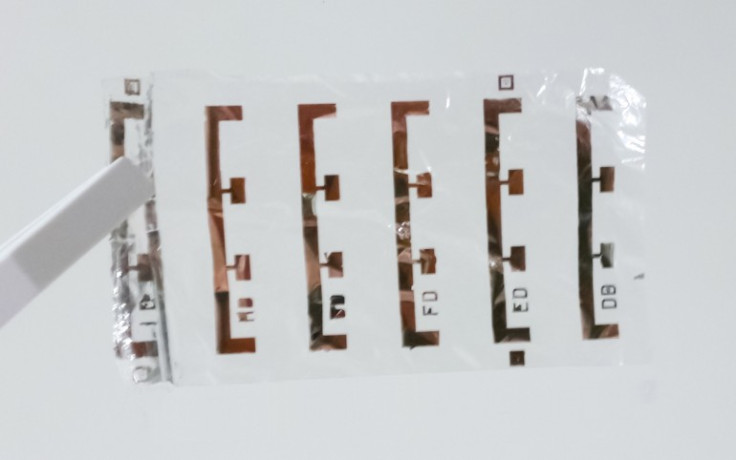Humans can detect magnetic fields using 'sixth sense' artificial skin

A new sensor thin enough to be applied to human skin has been developed by scientists in Germany and Japan that allows wearers to sense magnetic fields.
The sensor could add magnetoception to the range of human senses, an ability to detect magnetic fields such as found in sharks, birds and insects to navigate and maintain their spacial orientation.
Details of the "imperceptible magnetoelectronics" are described in the journal Nature Communications by researchers from the Leibniz Institute for Solid State and Materials Research (IFW Dresden) in Germany and the TU Chemnitz in collaboration with the University of Tokyo and Osaka University, Japan.

According to the researchers, the magnetic skin technology could potentially be used to read magnetic "messages" sent by electronic devices through "a 'sixth sense' magnetoception", as well as within the emerging field of soft robotics.
"These ultrathin magnetic field sensors readily conform to ubiquitous objects including human skin and offer a new sense for soft robotics, safety and healthcare monitoring, consumer electronics and electronic skin devices," the paper reads.
"Electronics of tomorrow will be imperceptible and will form a seamless link between soft, living beings and the digital world.
"Inspired by natures antetype, electronic skin is an intriguing technological platform already able to perceive temperature changes, mimic the sensation of touch, monitor and display physiological conditions, communicate wirelessly, and harvest and store energy for autonomous operation."
When applied to human skin, the sensor is able to bend and stretch without deteriorating or losing functionality.
At less than two micrometres thick and weighing three grams per square metre, the sensors are described by the researchers as "imperceptible".
"Magnetoception is a sense, which allows bacteria, insects and even vertebrates such as birds and sharks, to detect magnetic fields for orientation and navigation," the paper states.
"Humans are however unable to perceive magnetic fields naturally, but electronic skin could soon help to bridge this gap."
© Copyright IBTimes 2025. All rights reserved.






















